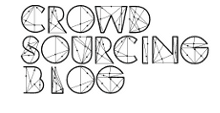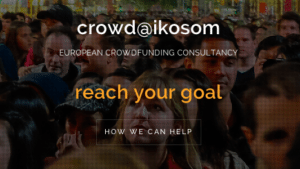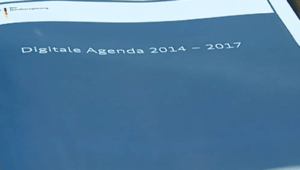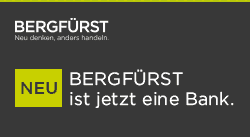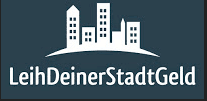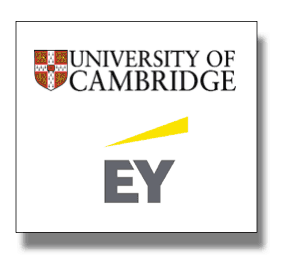 In recent weeks The University of Cambridge has teamed up with EY, the global professional services organization, and launched the European Alternative Finance Benchmarking Survey with the support of major European industry associations. This is the largest study to date on crowdfunding, peer-to-peer lending and other forms of alternative finance in Europe. This benchmarking survey, which opened on 25 November and closes on 20 December, aims to capture the size, transactional volume and growth of the alternative finance markets across Europe.
In recent weeks The University of Cambridge has teamed up with EY, the global professional services organization, and launched the European Alternative Finance Benchmarking Survey with the support of major European industry associations. This is the largest study to date on crowdfunding, peer-to-peer lending and other forms of alternative finance in Europe. This benchmarking survey, which opened on 25 November and closes on 20 December, aims to capture the size, transactional volume and growth of the alternative finance markets across Europe.
Major national and regional crowdfunding associations in France, Germany, Spain, Italy, the Netherlands, the Nordic countries and the UK are all participating in this groundbreaking research. This benchmarking survey is supported by FPF, ANACOFI and AFIP (France), the German Crowdfunding Network, the Spanish Crowdfunding Association, Crowdfunding Hub (Dutch), AISCRIS (Italy), the Nordic Crowdfunding Alliance, the UK Crowdfunding Association, the P2P Finance Association, the European Crowdfunding Network, the European Equity Crowdfunding Association as well as the P2P Banking.com.
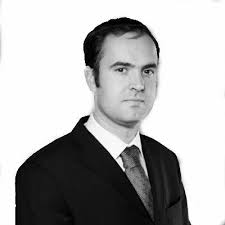 An interview with The University of Cambridge’s Dr. Mia Gray helped precipitate this nascent series. Integral to this research include a series of exclusive interviews with the thought leaders of these collaborating crowdfunding associations. To date, readers have had the pleasure of reading interviews with CrowfundingHub Founder and Executive Board Member of the European Crowdfunding Network, Ronald Kleverlaan, President of the Board of Asociación Española de Crowdfunding Daniel Oliver and AFIP and ANACOFI crowdfunding expert Marianne IIZUKA.
An interview with The University of Cambridge’s Dr. Mia Gray helped precipitate this nascent series. Integral to this research include a series of exclusive interviews with the thought leaders of these collaborating crowdfunding associations. To date, readers have had the pleasure of reading interviews with CrowfundingHub Founder and Executive Board Member of the European Crowdfunding Network, Ronald Kleverlaan, President of the Board of Asociación Española de Crowdfunding Daniel Oliver and AFIP and ANACOFI crowdfunding expert Marianne IIZUKA.
Today I had the pleasure of corresponding with Karsten Wenzlaff, Coordinator of the German Crowdfunding Network and member of the European Crowdfunding Stakeholder Forum, about the Cambridge-EY European Alternative Finance  Benchmarking Research. Wenzlaff is the founder of the Institute of Communications for Social Media (ikosom), a Berlin-based research facility for new forms of electronic technology. He has received an MPhil in International Relations with a thesis on international financial regulation from the University of Cambridge. Wenzlaff has published several articles on crowdfunding, recently co-authoring the Delphi-Studie “Crowdfunding 2020 – Komplement oder Substitut für die Finanzindustrie? and Crowdsourcing Report, for which he and the co-authors have received the “New Book Award” at the German Book Fair in Frankfurt. In addition, Wenzlaff co-organized the 2013 Conference “The Future of Crowdfunding,” a conference focusing on innovative solutions for financing entrepreneurship, culture and infrastructure which drew international crowdfunding experts. Wenzlaff is also a juror at the Social Lending Award 2015 and the OneSpark Crowdfunding Festival 2014 in Berlin.
Benchmarking Research. Wenzlaff is the founder of the Institute of Communications for Social Media (ikosom), a Berlin-based research facility for new forms of electronic technology. He has received an MPhil in International Relations with a thesis on international financial regulation from the University of Cambridge. Wenzlaff has published several articles on crowdfunding, recently co-authoring the Delphi-Studie “Crowdfunding 2020 – Komplement oder Substitut für die Finanzindustrie? and Crowdsourcing Report, for which he and the co-authors have received the “New Book Award” at the German Book Fair in Frankfurt. In addition, Wenzlaff co-organized the 2013 Conference “The Future of Crowdfunding,” a conference focusing on innovative solutions for financing entrepreneurship, culture and infrastructure which drew international crowdfunding experts. Wenzlaff is also a juror at the Social Lending Award 2015 and the OneSpark Crowdfunding Festival 2014 in Berlin.
Our interview ensues:
Erin: Why has the German Crowdfunding Network decided to participate in the Cambridge-EY European Alternative Finance Benchmarking Research?
Karsten: Germany is one of the most innovative Crowdfunding Markets in the world. We have platforms for almost every type of investment project and are attractive for many international platforms when establishing a presence on the European continent.
The Crowdfunding Study 2020, which we conducted together with the University of St.Gallen, asked finance
industry experts about their estimate of the German Market – the response was that the German Market in Crowdfunding would grow to 500 million Euros per year. But already the market is at about 200 Million Euro per year, so in all likelihood even very optimistic estimates of the Crowdfunding Industry are too small. Research on this development is absolutely necessary and with a Partner like the University of Cambridge and EY Global, we can maintain a professional standard of the research.
Erin: There are already a number of studies on Crowdfunding – how will this study be different?
Karsten: My company, ikosom has analysed the Crowdfunding Market since 2010 and developed the first study on behalf of the European Commission on the European Crowdfunding Market. A number of studies
have emerged since then. The Massolution Report for instance gives an good indication of the market in the global context, but misses the participation of the smaller niche plattforms. The European Crowdfunding Center in London has analyzed the large US and American Platforms, thus creating a slight bias toward the Anglo-American market. But there can never be enough research and the Cambridge EY Survey will not substitute the other studies out there, as well as the in-depth-research done by our academic members in the German Crowdfunding Network.
We think that a good first step would be to gather data from as many platforms as possible and simply compare the markets on a few key indicators. This will help us to establish the impact of regulation on the Crowdfunding Market.
Erin: The rapid growth of the various sectors indicate that peer to peer lending is clearly leading the charge – yet equity crowdfunding is rather small but growing rapidly. How do you explain this phenomenon? What about peer to peer lending?
Karsten: P2P Lending platforms like Smava and Auxmoney in Germany have been established for quite some time. We now see Peer-to-Business-Lending-Platforms like Finmar and Zencap being very successful. The lending platforms have a very simple business model and can scale easily, unlike most of the Equity-Based platforms and even more the Reward-Based platforms, where acquisition of new projects is a very time-consuming process. Equity-Crowdfunding nevertheless helps us to educate traditional investors about Crowdfunding. It opens the funding possibilities for companies of all size. In Germany, the equity-based Crowdfunding market is around one third of the lending-market, but has tenfold more media visibility.
Erin: German policy is targeting digital growth as part of the “Digital Agenda 2014-2017” and the need to provide access to capital for startups, yet recent rules passed by the Federal Government may imperil investment crowdfunding in Europe’s largest single economy. How can you explain this paradox?
Karsten: Crowdfunding is modern and energizing, that is why politicians love it. It helps bridge a finance gap and makes a country more innovative. At the same time, German politicians are afraid of market failure in the financial markets. Germans are very conservative when thinking about finance. We don’t have the same amount of Business Angels and Professional VCs as in the US. Crowdfunding is closing this gap, but the government wants to protect its citizens from risky investments.
However, the recent regulation proposal is not geared towards supporting the Crowdfunding Industry and establishing standards, but will make Equity-Based Crowdfunding more difficult. We hope that in the Parliament, we might get some changes in the law.
Erin: What are your thoughts about companies such as Bergfürst (with its Banking license) and Fidor Bank and their approach to crowdfunding?
Karsten: There are lots of Banks cooperating with platforms. A number of Banks have co-invested in Crowdfunding Projects, especially in seed-funding. A number of Banks have established donation-based platforms to showcase their charity projects and support the local community. A number of Banks have invested in Equity- and Lending-platforms or have created strong partnerships with platforms to learn from
the behavior of the investors.
FIDOR is rapidly evolving from an Online-Bank to a FinTech Infrastructure. There are platforms about to launch which will use the Bitcoin-Protocol for Crowdfunding and who make use of API. I personally think that FIDOR will be key player in pushing the German Crowdfunding Industry to international markets, because they provide the financial infrastructure and the technical agility. However, there are a number of other interesting payment providers out there. The service providers toward Crowdfunding Platforms are becoming as important as the platforms themselves.
Bergfürst had a tough time establishing their bank-licensed share model in Germany. Banking regulation in Germany is heavy and takes a lot of time and money to comply with. Their first project Urbana was highly successful; the second one is currently in the process of financing. I would like to see them have more projects on the platform.
In Germany, we currently see a development of platforms that are being established and which aim at institutional investors. This new market of professional Crowdinvesting in which companies such as FIDOR and Bergfürst are making the first move is growing rapidly.
Erin: What can the United States learn from Germany’s experience?
Karsten: In Germany, a large number of platforms started as a derivative of the Kickstarter model, but developed new features. In the US, Kickstarter and Indiegogo dominate the market and in my view only
Indiegogo is really innovative; when it comes to new features, Kickstarter has been almost stagnant. Indiegogo is also the only company that made a market presence in Germany early, it will still remain to see how Kickstarter will be doing when they enter Germany. The experience of Kickstarter in UK, Netherlands and Sweden is that is not so easy to enter an already saturated market. And in Germany, reward-based platforms such as Startnext, Visionbakery or Wemakeit have good connections to the creative industries in Germany.
In the Equity-Market, the US can learn from Germany how to create successful platforms for Seed- and Growth-Financing. Companies such as Companisto, Seedmatch, Innovestment, Bankless24, Fundsters or Fundedbyme are all using slightly different models. For any US Platform trying to enter the German market, it would be good to first contact people here in Germany who know the platforms really well.
I think the biggest learning could be from seeing how public institutions and platforms are cooperation. In Berlin, we created a website called which was financed by the government and supported by various institutions, such as the Chamber of Commerce in Berlin. It showcases all projects in Berlin, thus giving credibility to new projects and platforms without distorting the market.
Erin: How will investment Crowdfunding further spark innovation and boost entrepreneurship in Germany?
Karsten: Germany is really big in science and research, but not really big in bringing this research to markets, creating product. The last digital innovation in Germany was the MP3-protocol, but since then German developers are moving to the US when they want to scale their companies. Crowdfunding will change that in the future, making it possible for more ideas to be tested on the market and financed. It will increase the deal flow for Business Angels and VCs.
Erin: In its findings regarding the role of women in alternative finance, the recent Nesta-Cambridge report states that women make up the majority of fundraisers in both donations based and rewards based crowdfunding. How will women move to match the predominantly male P2P and equity crowdfunding sector? What about other under-served segments of the population?
Karsten: In Germany, we have a number of platforms run by female entrepreneurs: Crowdfans (Reward-
Based), Startnext (Reward-Based), Fairplaid (Donation-Based), Reset.to (Donation-Based) and Innovestment (Equity-Based). In the field of Crowdsourcing, we have even more female entrepreneurs, such as Innosabi. From my experience with Business Angels, it is important to have role models of female entrepreneurs, then more and more female investors will join the Crowdfunding Industry as well. Previous examples are Sugarshape on Seedmatch or Edition F on Companisto, which successfully shown that Crowdinvesting is not a male zone.
Erin: In order for alternative finance to grow, the Nesta-Cambridge report explicitly notes “the industry needs to continue innovating, educating users and addressing the various concerns consumers and SMEs have about alternative finance.” What will be done in Germany to engender such growth?
Karsten: We are working on a Code of Conduct for the industry which will separate the serious market players from those which are only aiming at exploiting the investors. The main focus of the Code of Conduct is to educate investors and make them ambassadors of this new form of supporting innovations.
Erin: Who do you identify as the trailblazing this path?
Karsten: Lots of people. Our network has more than 220 members now and every one of them is a trailblazer in their field. We recently met at the Crowddialog in Munich with around 800 participants, exchanging views with large business.
Personally, I like to follow the development of Civic Crowdfunding – Crowdfunding for infrastructure in cities and municipalities. The German Platform LeihDeinerStadtGeld is lending money to cities and I think this is a model that can be found nowhere in the world.
But also we have a new platform called Aescuvest which raises money for Health Startups. This will be an interesting field as well. There are innovative platforms for Crowdinvesting in Movies (Cinedime; Filmsters, Filmkraut), so serious investment for the Creative Industries is emerging. And we have Crowdfunding Platforms for Sport Clubs, such as Fairplaid.
Outside of Germany, my friend Gijsbert Koren from the Dutch Crowdfunding Consultancy Douw&Koren is in my opinion the most innovative thinker on Crowdfunding in Europe.
Erin: How do you see crowdfunding evolving across Europe?
Karsten: The European Crowdfunding Market is quite scattered, there are very few platforms offering services across borders, like Symbid, Companisto, Fundedbyme or Seedrs. However, in the European Crowdfunding Stakeholder Forum, which is an advisory body to the European Union, we are working on exactly this topic – decreasing the barriers between the various member states when it comes to the flow of the Crowd and its money.
__________________________________________________________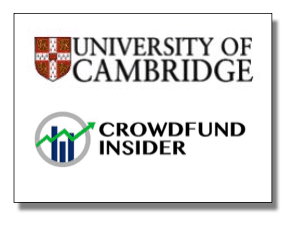
Crowdfund Insider has joined with The University of Cambridge to be the exclusive media partner on this benchmarking research. This interview is one of a series that includes multiple, in-depth interviews with international thought leaders and crowdfunding industry pioneers from the collaborating associations.
Please find the link to the benchmarking survey below:
https://www.surveymonkey.com/s/cambridge-ey-europeanaltfinbenchmarkingsurvey
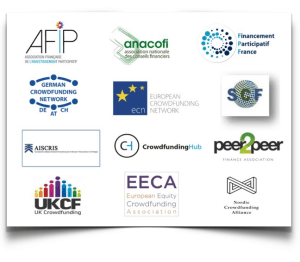 For benchmarking research enquiries please contact Bryan Zhang, PhD Researcher in Crowdfunding & Alternative Finance at The University of Cambridge via email zz251@cam.ac.uk or twitter @BryanZhangZ or Robert Wardrop, Research Fellow at the Judge Business School, at The University of Cambridge at rhw40@cam.ac.uk
For benchmarking research enquiries please contact Bryan Zhang, PhD Researcher in Crowdfunding & Alternative Finance at The University of Cambridge via email zz251@cam.ac.uk or twitter @BryanZhangZ or Robert Wardrop, Research Fellow at the Judge Business School, at The University of Cambridge at rhw40@cam.ac.uk


